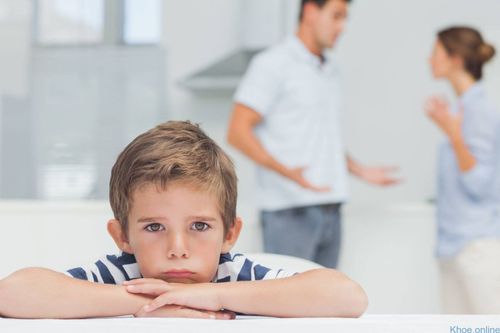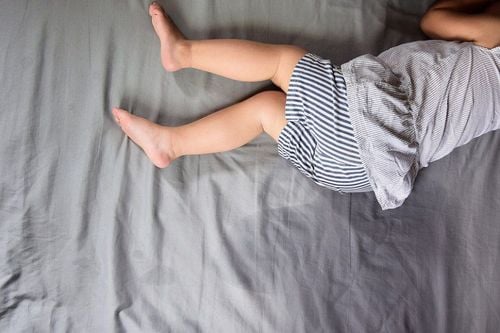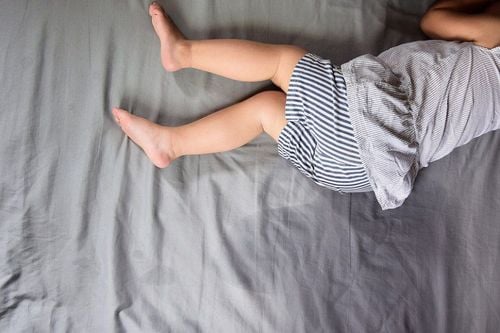This is an automatically translated article.
The article was professionally consulted by resident Doctor Duong Van Sy - Department of Pediatrics - Neonatology - Vinmec Hai Phong International General Hospital. Doctor has 09 years of experience in the field of Pediatrics.1. My child is the only one who still wet the bed
Thoughts like these probably shouldn't exist in parents because, according to many reputable sources that the American Academy of Pediatrics includes, about 5 million children in the United States still wet their beds every day. night. This includes 20% of 5-year-olds, 10% of 7-year-olds, and 5% of 10-year-olds (that is, those who have attended 3rd grade).Since wetting the bed can make parents feel embarrassed for their baby, people tend not to talk about it much. That can lead to the feeling that it's a matter of shame and leave kids with bedwetting feeling isolated. However, remember that bedwetting is a personal matter, so be very sensitive when discussing this in front of everyone, including family members, when there are children around. .
It's important to let your child know that bedwetting is completely normal given that many people wet the bed regularly as a baby, it's not intentional and nothing to be ashamed of. Even famous people have experienced these things. Jennifer Lawrence, a famous movie actress, once openly talked about bedwetting every night until she was in her teens.
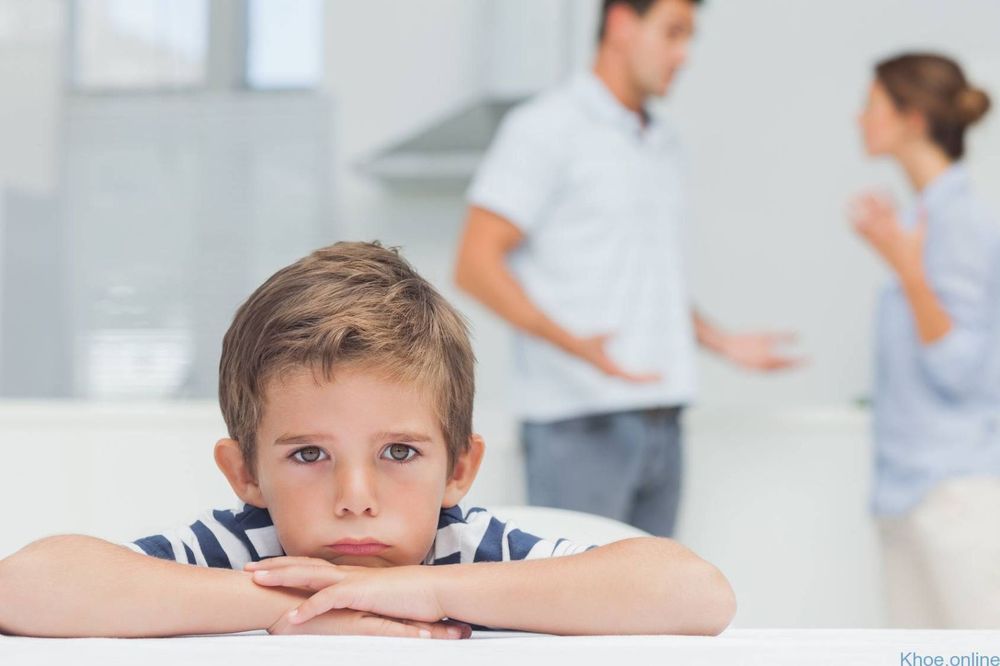
2. Children wet the bed because they are lazy
Children cannot control how they wet the bed. Bedwetting happens when children are still fast asleep and they really have no control over it nor do they intentionally do so, so parents say their child is lazy or has misbehavior leading to it. to bed wetting is really unfair to them. Yelling at or punishing your child for wetting the bed won't help and will only make things go off track. Parents probably don't want to see their kids feel guilty about something they really can't control.In order to stay dry all night, a child's body needs to be able to hold all of the urine produced during the night or to act on the central nervous system to wake the child up to go to the bathroom. Both require physical development to take place in its own time and cannot be rushed, just as parents expect a baby's first tooth to come in.
Do not force your child to change the bed sheets as punishment for their bedwetting. If children feel guilty on their own and want to help their parents, they should encourage and thank them for their help. Participating in such activities can make children feel more in control of the situation.
Older family members like grandparents can give young parents advice on how to deal with bedwetting. This is fine, but in practice, what worked in the past is not necessarily the best approach today.
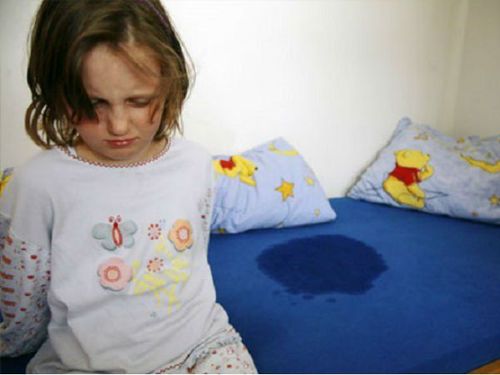
3. Limiting children to drink water before going to bed can help children not wet the bed
It sounds reasonable that giving children less water to drink at night, especially before bedtime, will prevent bedwetting in children. However, things are not so simple and the child's ability to control urination does not work according to that principle. When parents control how much water their children drink at night and before bed, this can lead to children not drinking enough water and obviously this approach becomes counterproductive. Even restricting children too much can make bedwetting worse.Water is the element that makes up the highest percentage in the human body. Water is present in all living activities, from cells to tissues, organs, organ systems. For so many health-related reasons, it's important for parents to remember to make sure their child is drinking enough water. Dehydration can increase the risk of constipation and urinary tract infections in children. As is known, constipation and urinary infections are two of the factors that make bedwetting in children worse.
However, experts also advise parents of children with bedwetting that children should drink enough water during the day. That can limit the thirst that comes at night, before the child goes to bed. When the child is not thirsty, the child will no longer want to drink water and the bladder will reduce the pressure it experiences during the night. Some parents have spent a lot of time to divide the proportion of water put into the child's body at the most reasonable level, specifically: about 40% of the day's fluids are given to the child in the morning, 40% of the water intake. Liquids during the day are provided to children in the afternoon and only 20% are provided at dinner. However, this is not a specific method to completely treat bed-wetting. Drinking less water at night doesn't mean your baby won't get the bed wet.
4. There are effective ways to treat bedwetting
This is a misconception about bedwetting in children. In fact, there is no recognized cure for bedwetting, it all depends on the developmental stages in the child's life. Therefore, be wary of expensive books, systems or products that claim to cure your baby's bedwetting. The research, research and intuition of young parents are valued above any product.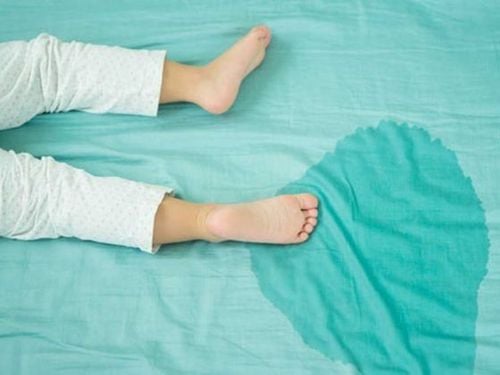
If the child is feeling frustrated or the child's parents feel stressed because of frequent bedwetting, schedule a talk with the doctor. Doctors will likely recommend treatments if they think they're right for them. And doctors can provide parents with more information and tips on how to help their child get over bed-wetting at night.
Bedwetting is relatively common, like any other stage in a child's development. There is a lot of useful and positive information about bedwetting in children, but there are also many misconceptions about this issue. And it's the parents' job to find out what information is useful to apply to their children. Understanding what's really going on can make it easier for parents of children to help them cope with the psychological effects of bedwetting on the whole family.
If it is not possible to improve bed-wetting in children with home remedies, parents should take the child to Vinmec International General Hospital for a diagnosis to determine the cause and treatment intervention. The leading urologists at Vinmec will perform the necessary examination methods to find out the cause of nocturia syndrome and give the most effective treatment advice to help children return to normal activities soon. normal.
If you have a need for medical examination at Vimec Health System nationwide, please make an appointment on the website to be served.
Please dial HOTLINE for more information or register for an appointment HERE. Download MyVinmec app to make appointments faster and to manage your bookings easily.
References: babycenter.com, childrensdayton.org, bbuk.org.uk





